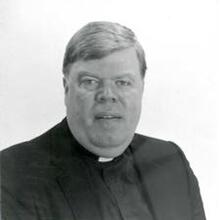Belgium has recently set a new record. It has become the first country in the world to permit euthanasia for children. The new law removes the age restrictions on an earlier Belgian law that permitted euthanasia for adults in 2002.
The original law has had its own problematic history. It allowed adults with “unbearable suffering” to request a doctor to administer a lethal injection after several written requests, a waiting period and a medical evaluation of the patient’s mental competence. The law was originally defended as a way for patients with terminal illness and intractable physical pain to seek a merciful exit from their situation.
The application of the law has proved otherwise. “Unbearable suffering” was soon interpreted to include psychological, not only physical pain. A debilitating condition, not only terminal disease, could justify the request for death. Legally euthanized patients have included people suffering from depression, anorexia nervosa and impending blindness. In one case, a transgender citizen unhappy with the results of the sex-change surgery requested and received the lethal treatment. Recent studies indicate that one quarter of the patients euthanized could not have requested the procedure in anything resembling conditions of informed consent.
The move to extend euthanasia to children rests on an argument from equality: If adults have the legal right to seek a lethal medical exit from their unbearable pain, why shouldn’t children enjoy the same freedom? Supporters of the new law insist that it contains safeguards against abuse. The law stipulates that the only medical condition that could constitute grounds for the euthanasia of a minor is the presence of terminal illness, imminent death and untreatable physical pain. The child must be “capable of discernment” concerning the gravity of the request for a lethal injection. A psychologist must verify this mental competence. Both parents and the attending physician must consent to the requested act of euthanasia.
Critics are not convinced. Belgium is renowned for its advanced system of medical care. A committee of pediatricians protested that the palliative care available in the nation could successfully treat even the most painful conditions.
The law’s opponents roundly contested the claim that children had the capacity to decide whether a physician could kill them. Christian Democratic opponents of the law underscored the absurdity of granting life-and-death powers to minors who are not civilly capable of voting, contracting marriage or ordering a beer in the local café. Loose phrases in the new law—“capacity for discernment” reads like something from the desert fathers—seem to guarantee abuses similar to those that have plagued the drifting interpretations of its 2002 ancestor.
An eloquent witness against the law was the nurse Sonja Develter. A specialist in pediatric medicine, Develter has cared for more than 200 children in the final stages of terminal illness. She testified that she had not met a single child in such a condition who had asked to be killed. She had, however, met several parents who expressed a desire to have their child euthanized. The emotional exhaustion of caring for a dying child had overwhelmed them. It is difficult to imagine minors who could make a decision concerning euthanasia free from the influence of their families’ attitudes. If they sense they have become a burden, the scale will inevitably be tipped toward the lethal option.
The extension of euthanasia to children is not the last frontier in the euthanasia campaign. Some supporters of the recent law have argued for extension of euthanasia to patients with dementia. The consent of a “loved one” to killing such a patient could be sufficient.
As Belgium’s legal experiment broadens the class of beneficiaries of euthanasia, the original arguments in support of mercy killing have faded. The practice of medicalized death is no longer limited to those with intractable physical pain, a terminal illness with death imminent and an adult’s rational capacity to offer informed consent free from emotional duress. It is increasingly offered to—in fact, urged upon—the seriously ill and disabled because we have concluded that certain lives are simply not worth living.








